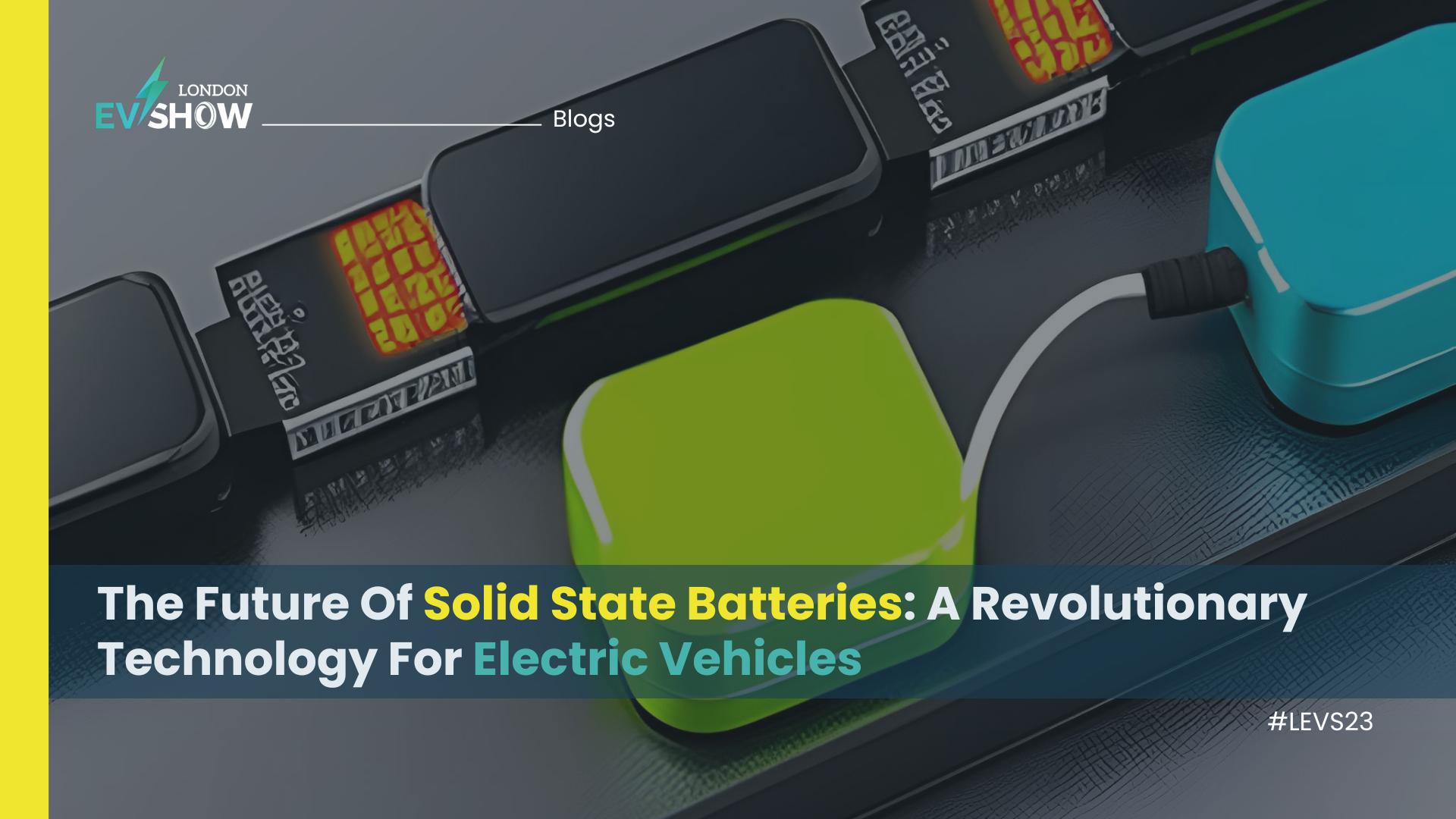Solid State batteries are set to revolutionise the world of energy storage and electric vehicles. This groundbreaking technology offers an exciting new frontier in energy storage technology, with the potential to revolutionise the electric vehicle industry and transform the way we power our transportation systems.
What exactly are solid state batteries? Solid State batteries utilise a solid state electrolyte instead of liquid or gel electrolytes commonly used in traditional batteries. The solid state electrolytes can be made from various materials including ceramics, glass, and polymers. Solid State batteries offer several advantages over traditional batteries including faster charging, longer cycle life, and improved safety due to their lack of flammable organic components. Additionally, the potential for higher energy density could enable solid state batteries to store greater amounts of energy within the same amount of space. In contrast to the porous electrodes and a polymer separator of traditional lithium ion cells, solid state batteries replace the separator and electrolyte with a solid state separator. This solid state separator acts both as an electrical insulator and ionic conductor, allowing the use of a lithium metal anode instead of the carbon or silicon anodes found in conventional lithium-ion batteries.
How Solid State Batteries are going to impact the EV industry? The key concept behind solid state batteries is the replacement of the liquid electrolyte found in the traditional lithium-ion batteries with a solid electrolyte. This simple change has the potential to address many of the issues that have been associated with lithium-ion batteries for years. One of the most significant benefits of solid state batteries is their improved safety. By eliminating the flammable liquid electrolyte, the risk of catastrophic fires is greatly reduced. This feature alone makes solid state batteries an attractive option for EVs that have faced concerns over battery safety in the past. Additionally, solid state batteries have the potential to revolutionise EV charging times. With the solid state electrolyte these batteries can recharge in as little as 10 minutes, addressing the current EV charging wait time issue. Another promising aspect of solid state batteries is their potential for higher energy density, which would allow for a smaller overall footprint. This higher energy density allows for smaller batteries with higher power capabilities, freeing up valuable space within electric vehicle for other features to be incorporated. With a projected longer lifespan, solid state batteries could prove to be a convenient and cost effective option for EV owners, reducing the need for frequent battery replacements.
When to expect Solid State Battery powered EVs? Several car manufacturers have revealed plans to introduce electric vehicles equipped with solid state batteries, with some expected to hit the market by 2025, and more to follow by 2030. While some carmakers are developing their own solid state battery technology, others are collaborating with partners, including startups and established companies. It’s worth noting that the development and commercialisation of solid state batteries is a complex and challenging process, and there are still many technical and manufacturing hurdles that need to be overcome. However, the potential benefits of solid state batteries for electric vehicles are significant, and it’s likely that solid state powered EVs will become more widespread in the coming years as the technology continues to advance.
Solid State batteries offer significant potential for reducing the environmental impact of batteries. A study commissioned by Transport & Environment and conducted by Minviro, compared solid state batteries to traditional battery technology and found that they have the potential to significantly reduce the carbon footprint of electric vehicle batteries. According to the study, solid state batteries might reduce EV batteries carbon footprint by two-thirds. Furthermore, they could reduce the climate impact of batteries by 39% compared to the traditional lithium ion batteries, as long as the raw materials used in their production are sustainably sourced.
While Solid State batteries have tremendous potential, there are some challenges associated. They require specialised equipment and techniques, which can be expensive and difficult to scale up to mass production levels. Additionally, there is a need to improve the stability and durability of solid state batteries over many charge discharge cycles. This involves addressing issues such as dendrite formation, which can cause short circuits and reduce the lifespan of the battery.
The future of solid state batteries is incredibly promising, and it has the potential to change the landscape of the electric vehicle industry. The development and adoption of solid state batteries in the EV industry could lead to more efficient, practical and affordable electric vehicles, which could help accelerate to a more sustainable transportation system. Overall, solid state batteries hold great promise for the future of EVs and it will be exciting to see how this technology evolves and impacts the automotive industry in the years to come.

